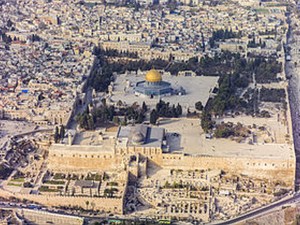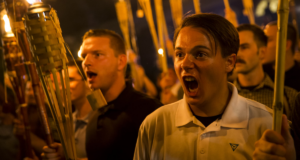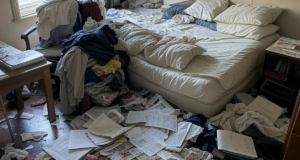“Let me say it again: JEWS. PRAYING. You can just feel the existential threat.”
 Jerusalem, April 12 – Israeli law enforcement authorities confirmed today that their policies stem from the assumption that Jews engaging in quiet worship rituals near the faith’s holiest site pose a greater hazard to public safety than do rampant protection rackets in the south, vandalism directed at Jewish farmers, flagrant Arab beatings of Jews in broad daylight, and the recurring phenomenon of military equipment being carted off in broad daylight by Bedouin.
Jerusalem, April 12 – Israeli law enforcement authorities confirmed today that their policies stem from the assumption that Jews engaging in quiet worship rituals near the faith’s holiest site pose a greater hazard to public safety than do rampant protection rackets in the south, vandalism directed at Jewish farmers, flagrant Arab beatings of Jews in broad daylight, and the recurring phenomenon of military equipment being carted off in broad daylight by Bedouin.
Minister of Internal Security Amir Ohana acknowledged Monday that the government places a greater priority on preventing Jews from praying on the Temple Mount than it does on securing military sites that have proved tempting, repeated targets for equipment and weapons theft; combating lawlessness among Negev Bedouin and migrant workers in South Tel Aviv; mitigating pervasive gun crime in the Arab sector; preventing and demolishing illegal construction; fighting domestic violence; opposing polygamy; and deterring Arab attacks on Jews and Jewish agricultural sites, including destruction of property and theft of equipment and livestock.
“You can’t imagine how dangerous it is for all of us when a Jew moves his or her lips in prayer near the site that the Prophet Isaiah calls ‘a house of prayer for all the the nations,'” he observed in an interview. “Many people simply don’t understand that. We need to concentrate our resources on preventing such a hazardous thing from happening, and on arresting and prosecuting the offenders promptly when it does happen, and then, once the threat has passed, perhaps we can devote our attention to those other, lesser concerns. Unfortunately, provocateurs continue to insist Jews should enjoy the same religious, human, and civil rights as others do, in this case Muslims, who built their shrine on top of where two Jewish temples stood; those provocateurs require constant vigilance to deter.”
“As you can imagine, we have only so many resources,” he continued. “So we have to allocate them according to what we think is more urgent vs. less urgent. Sure, doing something about building and infrastructure contractors in the Negev being forced to pay protection money to local gangs might seem pretty urgent to the outsider, but outsiders don’t have access to the bigger picture. Let me say it again: JEWS. PRAYING. You can just feel the existential threat, and now you understand why other security and public safety issues are just going to have to take a back seat until we can do something about pesky Jews who think the holiest Jewish site is somehow connected to them.”




